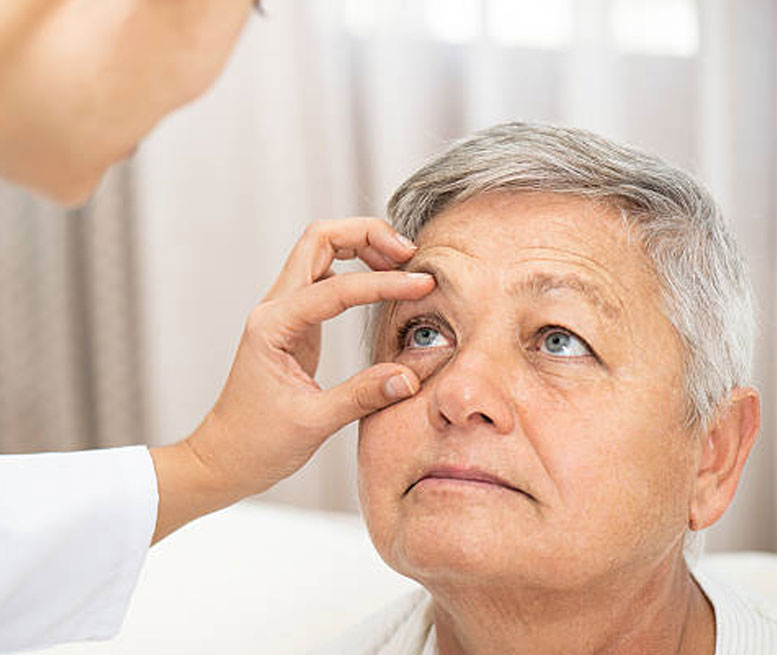PREVENTIVE MEDICINE:
The Science of Longevity
20 July 2024
By User

PREVENTIVE MEDICINE:
The Science of Longevity
20 July 2024
By User
*The material provided in this blog is for informational purposes only and should not replace a consultation with a doctor. Every case is unique and should be evaluated by a healthcare professional. Vidamax Medical Center recommends consulting with a doctor to receive personalized advice.
We all desire good health, but how do we maintain it as we age? The answer lies in preventive medicine. This proactive approach to managing your health focuses on identifying and addressing potential issues before they escalate.
Preventive medicine is especially important for seniors when it comes to maintaining independence and a high quality of life. By staying active in their healthcare and managing chronic conditions with the support of medical centers and experienced physicians, seniors can prevent health problems from emerging.
What is Preventive Medicine?
The Role of Your Medical Center
Preventive medicine has evolved significantly over time. While early records from ancient Egyptians and Greeks, like Hippocrates, emphasized balanced diets and hygiene, much has changed since those early practices. By the 19th century, breakthroughs, such as developing vaccines for smallpox and polio, marked major advancements in disease prevention.
Today, preventive healthcare, under the guidance of medical practitioners and medical centers, continues to progress by incorporating technology, such as wearable devices, telemedicine, and big data, to monitor health in real-time and enable earlier interventions.
By identifying health issues early on, patients can avoid the progression of conditions that might otherwise require invasive treatment or lead to life-threatening complications. This isn’t limited to just one area of health. Preventive strategies apply to everything from heart disease and diabetes to cancer and mental health.
The earlier a health issue is identified, the more effectively it can be treated. This reduces the need for invasive procedures and minimizes the risk of complications. This approach has been proven to lower healthcare costs in the long run, reduce hospitalizations, and improve quality of life.
Different Types of Prevention:
A Blueprint for Improving
Your Wellbeing
To fully harness the power of preventive care, it’s important to understand its three key levels: primary, secondary, and tertiary prevention. Each of these levels plays a crucial role in maintaining health and preventing serious illness by offering tailored strategies for every stage of the health journey. Let’s explore how these prevention methods work.


Primary Prevention:
Stopping Diseases Before They Start
This level includes strategies like vaccinations, promoting physical activity, and educating people about healthy eating. These efforts aim to strengthen the body’s defenses and reduce risk factors.

Secondary Prevention:
Early Detection in Medical Centers
This level focuses on catching diseases early, even before symptoms become noticeable. Screenings for cancers, such as mammograms or colonoscopies, help detect abnormalities at a stage in which treatment is more likely to succeed. Regular check-ups for blood pressure or cholesterol also fall into this category, allowing healthcare providers to intervene before conditions worsen.

Tertiary Prevention:
Managing Complications and Improving Quality of Life
This level involves rehabilitation and ongoing management of illnesses like heart disease or diabetes. For instance, cardiac rehab helps patients regain strength and prevent further complications after having a heart attack. It’s about controlling existing conditions and preventing them from becoming more debilitating.
The Benefits of Preventive Medicine
Promotes Health Literacy: Preventive care involves more than just undergoing physical exams, as it also includes providing education about risks and lifestyle choices, helping people understand their health better. Patients become better decision-makers when managing their health by gaining insight into their wellness.
Fosters a Proactive Mindset: Regular screenings and healthy habits prompt people to take action before issues develop rather than reacting only once their health has already begun to deteriorate.
Enhances Collaboration Between Patients and Providers: This approach to care shifts the dynamic from a one-time visit to ongoing engagement, where the patient actively participates in their health journey through continuous feedback and monitoring.
Supports Mental and Emotional Well-Being: Preventative care includes mental health screenings, stress management, and behavioral counseling, as emotional well-being is crucial to one’s overall health. Regular mental health check-ins help identify issues like depression and anxiety early, offering support before they escalate.
Encourages Community Health and Wellness: Widespread vaccination programs, health education initiatives, and public screenings help protect entire populations from preventable diseases, leading to stronger citizens.
Common Preventive Practices Offered by Medical Centers
Taking care of your health doesn’t have to wait until you feel unwell. Here are some simple and effective ways to incorporate preventive care into your routine:

Stay on Top of Screenings
Regular health screenings are essential for early detection of potential issues. This is why it is so important to schedule tests like:
- Mammograms to catch early signs of breast cancer.
- Pap smears to help prevent cervical cancer.
- Colonoscopies to identify and remove pre-cancerous polyps.
- Blood pressure and cholesterol checks to manage the risk of heart disease.
- Blood sugar tests to prevent or manage diabetes.
Maintain Your Visual Acuity
As you approach 40, it’s important to prioritize your eye health. Early detection and treatment of eye conditions are now available, helping you safeguard your sight for years to come.
- Eye exams can help catch glaucoma by measuring eye pressure, assessing corneal thickness, and evaluating the optic nerve and visual field.
- Screenings can also help catch age-related macular degeneration (AMD) in its early stages.
- Cataracts can be monitored and addressed through safe and effective treatments when necessary.


Maintain Your Visual Acuity
As you approach 40, it’s important to prioritize your eye health. Early detection and treatment of eye conditions are now available, helping you safeguard your sight for years to come.
- Eye exams can help catch glaucoma by measuring eye pressure, assessing corneal thickness, and evaluating the optic nerve and visual field.
- Screenings can also help catch age-related macular degeneration (AMD) in its early stages.
- Cataracts can be monitored and addressed through safe and effective treatments when necessary.

Keep Vaccinations Up to Date
Immunizations aren’t just for kids. They’re a vital part of adult health too:
- Get your flu shot annually to avoid seasonal illness.
- Ensure your children’s vaccinations are up to date to protect them from serious diseases.
- Consider vaccines for pneumonia and shingles if you’re over 50.
Adopt Healthier Habits with Guidance
Making healthy lifestyle choices is easier with support:
- Join a smoking cessation program to quit smoking for good.
- Get nutritional advice to improve your diet and maintain a healthy weight.
- Incorporate regular exercise into your routine to keep your heart strong and manage stress.
- Limit alcohol consumption with the help of counseling if needed.


Adopt Healthier Habits with Guidance
Making healthy lifestyle choices is easier with support:
- Join a smoking cessation program to quit smoking for good.
- Get nutritional advice to improve your diet and maintain a healthy weight.
- Incorporate regular exercise into your routine to keep your heart strong and manage stress.
- Limit alcohol consumption with the help of counseling if needed.

Take Care of Your Teeth
Oral health impacts overall health, so be sure to:
- Schedule regular dental cleanings to prevent cavities and gum disease.
- Ask for fluoride treatments to protect your teeth from decay.
Monitor Your Weight and Bone Health
Staying ahead of physical health challenges can prevent future issues:
- Track your BMI to maintain a healthy weight and reduce risks for conditions like diabetes and heart disease.
- Get a bone density test to monitor your risk for osteoporosis and protect your bone health.


Monitor Your Weight and Bone Health
Staying ahead of physical health challenges can prevent future issues:
- Track your BMI to maintain a healthy weight and reduce risks for conditions like diabetes and heart disease.
- Get a bone density test to monitor your risk for osteoporosis and protect your bone health.
How Technology is Transforming
Preventive Medicine in Miami
Technology is revolutionizing the field of preventive medicine. Today, wearable devices, mobile health apps, and telemedicine make it easier for individuals to monitor their health in real-time. Smartwatches can track heart rate, sleep patterns, and physical activity, while telemedicine allows patients to consult with healthcare providers from the comfort of their own homes. This especially benefits people living in remote areas or individuals with mobility issues.
Artificial intelligence (AI) and big data are also enhancing preventive care. For example, predictive algorithms can help identify at-risk individuals before conditions worsen, leading to earlier interventions. With the rise of virtual care and health technology, preventive healthcare is becoming more personalized and accessible, bringing high-quality care to more people.
Setting Healthcare Priorities
From understanding the history and evolution of prevention to embracing modern practices like routine screenings, vaccinations, and lifestyle counseling, the benefits are clear: early detection saves lives, reduces healthcare costs, and improves overall well-being. By focusing on primary, secondary, and tertiary prevention, you can take control of your health before issues arise and ensure a higher quality of life.
As a trusted medical center in Miami, Vidamax is committed to empowering you with the tools and knowledge needed to manage your health and proactively avoid potential risks. We prioritize prevention to ensure that you will feel your best for years to come.
*The material provided in this blog is for informational purposes only and should not replace a consultation with a doctor. Every case is unique and should be evaluated by a healthcare professional. Vidamax Medical Center recommends consulting with a doctor to receive personalized advice.
Sources:
- https://health.gov/healthypeople/objectives-and-data/browse-objectives/preventive-care#:~:text=Getting%20preventive%20care%20reduces%20the,recommended%20preventive%20health%20care%20services.&text=Healthy%20People%202030%20focuses%20on,for%20people%20of%20all%20ages.
- https://www.sciencedirect.com/science/article/pii/S2414644719300508
- https://www.healthline.com/health/what-is-preventive-health-and-why-is-it-important
- https://www.ncbi.nlm.nih.gov/books/NBK537222/
- https://www.acpm.org/

